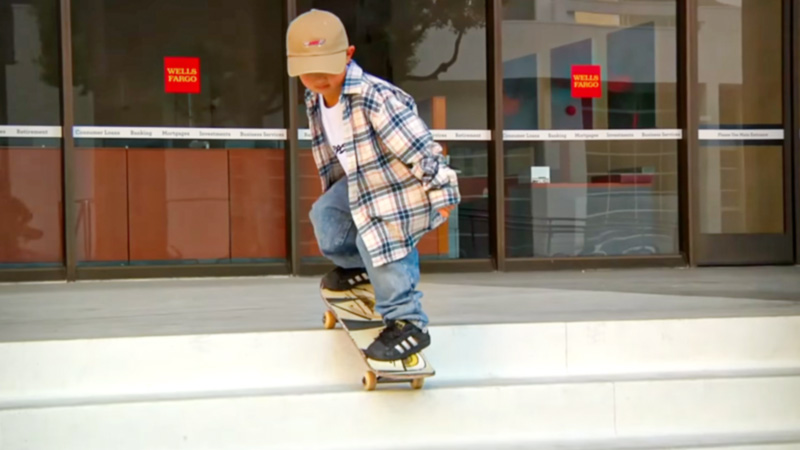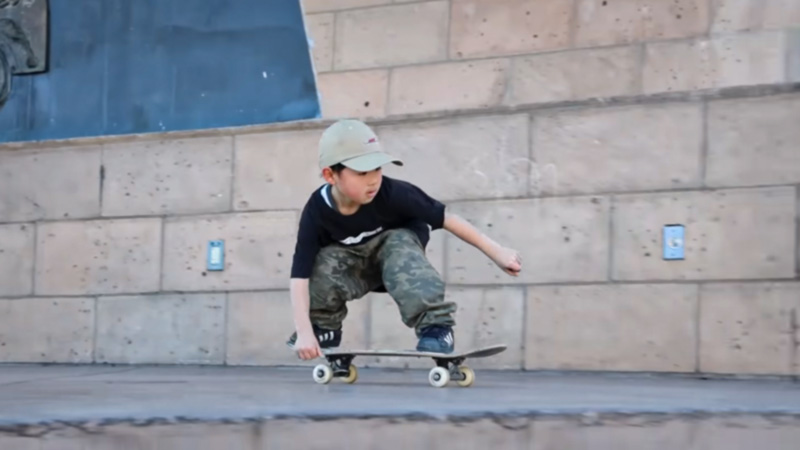Skateboarding is a dynamic and exhilarating sport that has captured the hearts of individuals of all ages. From the adrenaline rush of performing tricks to the sense of freedom that comes with cruising on a board, skateboarding offers a unique and rewarding experience.
If you’re a parent considering introducing your child to the world of skateboarding or an adult curious about taking up the sport, you’ve likely wondered about the right age to start.
In this blog post, we’ll delve into five frequently asked questions surrounding the age to embark on a skateboarding journey. Whether you’re a complete novice or a seasoned enthusiast, read on to gain insights that will help you make an informed decision. Stay focused.
What Age To Start Skateboarding?
Skateboarding can be enjoyed by individuals of various ages, but the ideal starting age often depends on a person’s physical development, coordination, and personal interests. Generally, children around the age of 5 or 6 can begin to experiment with mini skateboards and develop basic balance skills.
As kids grow, around 8 to 10 years old, they may have the coordination needed to tackle more complex maneuvers. Teenagers and adults can start skateboarding at any point, with many picking up the sport in their early teens.
It’s important to consider personal comfort levels, safety precautions, and the willingness to invest time in learning and practicing. Ultimately, skateboarding can be enjoyed by anyone willing to embrace the learning curve and the thrill of mastering a versatile and expressive form of recreation.
What Is the Appropriate Age to Start Skateboarding?
Introducing skateboarding to a 3-year-old is generally not recommended due to their physical and cognitive development. At this age, children are still developing basic motor skills, balance, and coordination.
Their bodies might not be fully equipped to handle the physical demands and potential risks associated with skateboarding. Instead, it’s advisable to wait until a child is around 5 or 6 years old before introducing them to mini skateboards or balance boards that can help them develop fundamental skills.
Starting at this age allows them to better grasp the basics of balance and coordination before progressing to more advanced skateboarding maneuvers as they grow older. Always prioritize safety and age-appropriate activities when introducing children to new sports.
Benefits of Skateboarding

Skateboarding offers a range of physical, mental, and social benefits for individuals of all ages:
Physical Fitness
Skateboarding engages various muscle groups, improving strength, balance, and coordination. It promotes cardiovascular health and helps to develop flexibility and agility.
Motor Skills
Maneuvering a skateboard requires precise movements, enhancing fine and gross motor skills. Learning tricks and navigating obstacles enhances spatial awareness and reflexes.
Confidence Building
Progressing in skateboarding, mastering new tricks, and overcoming challenges boost self-confidence and a sense of accomplishment.
Creativity
Skateboarding encourages creativity as riders find unique ways to interact with their environment, experimenting with different moves and lines.
Stress Relief
Riding a skateboard provides an outlet for stress and pent-up energy, promoting mental well-being and relaxation.
Persistence and Perseverance
Skateboarding involves a learning curve, teaching individuals patience, determination, and the value of practice.
Social Interaction
Skate parks and skating communities offer opportunities for socializing, making friends, and sharing a common passion.
Individual Expression
Skateboarding is a form of self-expression, allowing riders to showcase their personal style through tricks, clothing, and board design.
Focus and Concentration
Executing tricks demands concentration, enhancing focus, and mindfulness. This is a must for all players.
Physical Literacy
Skateboarding contributes to a well-rounded physical education, fostering a diverse skill set beyond traditional sports.
Adaptability
Overcoming different terrains and adapting to changing environments hones problem-solving skills and adaptability.
Sense of Freedom
The sensation of gliding on a skateboard imparts a sense of freedom and liberation, fostering a deep connection to the sport.
Lifestyle
Skateboarding can become a healthy lifestyle choice, encouraging outdoor activity and exploration.
Respect for Rules
Skate parks have their own set of rules and etiquette, teaching riders to respect shared spaces and the safety of themselves and others.
Risk Management
Learning to assess risks and make split-second decisions while skateboarding can translate into improved decision-making in other aspects of life.
Things to Be Careful of While Skateboarding
Skateboarding can be thrilling, but it’s important to prioritize safety to avoid accidents and injuries. Here are key things to be careful of while skateboarding:
Protective Gear
Always wear proper protective gear, including a helmet, knee pads, elbow pads, and wrist guards to reduce the risk of head and joint injuries.
Terrain Assessment
Inspect the skating area for potential hazards such as cracks, pebbles, debris, or uneven surfaces that could lead to falls.
Traffic and Pedestrians
Avoid busy streets and areas with heavy traffic. Respect pedestrians and give them the right of way to prevent collisions.
Weather Conditions
Be cautious of wet, icy, or slippery surfaces as they can increase the likelihood of accidents. Rain or damp conditions can affect grip.
Skill Level
Don’t attempt tricks or maneuvers beyond your skill level. Gradually progress and practice basics before moving on to advanced techniques.
Warm-Up
Warm up your muscles with stretching or light exercises before skateboarding to prevent strains or injuries.
Speed Control
Learn to control your speed and practice slowing down safely using foot-braking or other techniques.
Proper Footwear
Wear sturdy, flat-soled shoes that provide good grip and support to prevent foot injuries.
Avoid Distractions
Focus on skateboarding without distractions like headphones or phone use, which can impede your awareness of your surroundings.
Crowded Areas
Be cautious in busy skate parks or areas with many skaters. Watch out for sudden movements and respect the flow of the park.
Regular Maintenance
Keep your skateboard in good condition by checking the trucks, wheels, and deck regularly to prevent malfunctions.
Fatigue and Rest
Avoid skateboarding when fatigued as it can impact your reflexes and decision-making. Take breaks and stay hydrated.
Respect Personal Limits
Listen to your body and take breaks if you’re feeling tired or sore to prevent overexertion.
Watch for Cars
If skating near roads, always be aware of approaching vehicles and use caution at intersections.
Learn Falling Techniques
Practice how to fall safely to minimize the risk of injury. Rolling with the fall and avoiding stiffening up can reduce the impact.
By being mindful of these precautions and practicing responsible skateboarding, you can enjoy the sport while minimizing the chances of accidents and ensuring a positive experience.
At What Age Should You Stop Skateboarding?
The decision to stop skateboarding can vary from person to person and depends on factors such as physical health, personal preferences, and comfort level. Skateboarding is a sport that can be enjoyed by individuals of various ages, and there is no specific age at which you should stop.
As long as you’re physically able and enjoy skateboarding, there’s no reason to set an arbitrary age limit. Many skaters continue well into their adult years and even beyond. However, it’s important to consider a few things:
Physical Condition
Listen to your body. If you start experiencing chronic pain or find that skateboarding is causing discomfort or strain on your joints, it might be a sign to scale back or consider other activities.
Risk Tolerance
As you get older, your body may take longer to heal from injuries. Consider whether the risks associated with skateboarding align with your willingness to handle potential injuries
Lifestyle Changes
Life circumstances and responsibilities might change as you age, which could impact the time you can dedicate to skateboarding.
Enjoyment
If you’re no longer finding enjoyment in skateboarding or if your interests shift, it’s okay to explore other hobbies and activities.
So, the decision to stop skateboarding is a personal one. If you choose to continue, make sure to adapt your skateboarding style and techniques to your changing physical capabilities and preferences.
FAQs
At what age can a child start skateboarding?
It’s generally recommended to introduce skateboarding to children around the age of 5 or 6. At this stage, they have begun developing basic motor skills and balance, which are crucial for learning to ride a skateboard.
Starting with a mini skateboard or balance board can help them build these fundamental skills gradually.
Can a 3-year-old start skateboarding?
While skateboarding at 3 years old might seem tempting, it’s advisable to hold off. Children of this age are still in the early stages of physical and cognitive development, and the demands of skateboarding could pose safety risks.
Waiting until they’re a bit older allows them to better grasp the basics and reduce the likelihood of accidents.
Is there an upper age limit to start skateboarding?
Skateboarding knows no age limits. Teenagers and adults can start skateboarding at any point in their lives, as long as they’re physically capable and willing to embrace the learning process.
Many find that picking up skateboarding in their early teens or even later offers a fantastic way to stay active and engaged.
What factors should be considered when deciding to start skateboarding?
Consider factors such as physical fitness, personal interest, and the availability of safe skating areas. Starting skateboarding requires time, practice, and a willingness to fall and learn from mistakes.
It’s essential to be patient with the learning curve and prioritize safety by wearing appropriate protective gear.
Can skateboarding be a family activity?
Absolutely! Skateboarding can be a wonderful family activity that fosters bonding and encourages outdoor play. Parents can skate alongside their children, setting a positive example of healthy physical activity and perseverance.
Wrapping Up
The right age to start skateboarding ultimately depends on individual factors, but the general consensus centers around introducing the sport when basic motor skills and balance have begun to develop, typically around 5 or 6 years old.
Whether you’re a young beginner or an older enthusiast, skateboarding offers a gateway to physical fitness, creativity, and a vibrant community.
Remember, age is just a number on the skateboard; what truly matters is the joy, camaraderie, and sense of accomplishment the sport can bring into your life. Best of luck.







